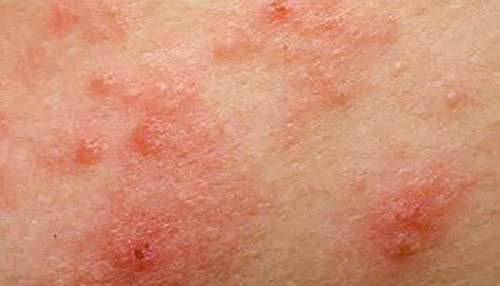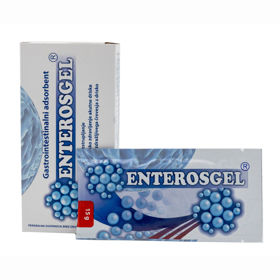Customer question:
What is E coli? Anonymous customer's question
Pharmacist's answer:
Escherichia coli (E. coli) is a bacterium usually present in the intestines. Most strains of E. coli are harmless and even beneficial to human digestion, as they can aid in the breakdown of food and the synthesis of specific vitamins. However, some strains of E. coli can cause illness in humans. Some strains of E. coli are pathogenic and cause infections that can develop in various parts of the body, including the digestive system, urinary tract, lungs, and other organs. Among the pathogenic strains of E. coli is also one that can cause food poisoning.
E. coli is most often spread through contaminated food or water. Infection with pathogenic strains of E. coli can cause various symptoms, from mild to very serious, even life-threatening. The most common symptoms include diarrhea, abdominal pain, nausea, vomiting, and sometimes fever. In some people, especially those with weakened immune systems, infection with pathogenic strains of E. coli can cause more severe illness.
It is important to emphasize that most strains of E. coli are not harmful and are present in people's intestines without causing disease. However, it is essential to observe proper hygiene practices when preparing food and drinking water to prevent infection with pathogenic strains.
What are the symptoms of E coli infection?
Symptoms of Escherichia coli (E. coli) infection can vary and depend on the specific strain of the bacteria and the severity of the infection. Most strains of E. coli are harmless and are found in the intestines, where they play beneficial roles in digestion.
However, some pathogenic strains can cause various diseases in humans. Some common symptoms of infection with pathogenic strains of E. coli include:
- Diarrhea: diarrhea is one of the most common manifestations of E. coli infection. This can vary from mild to severe and, in some cases, even contain blood.
- Abdominal pain: Infection with pathogenic strains of E. coli can cause abdominal pain, cramps, and discomfort.
- Nausea and vomiting: some patients with E. coli infection experience nausea and vomiting.
- Fever: Sometimes, a fever may develop in response to an infection.
- Dehydration: Severe diarrhea and vomiting can cause dehydration, especially in children and older adults.
- Loss of appetite: infection can cause loss of appetite.
In some cases, especially with more severe infections, complications can occur, such as hemolytic uremic syndrome (HUS), which includes anemia, thrombocytopenia (reduced platelet count), and kidney dysfunction. If you have symptoms that suggest an E. coli infection, talk to your doctor, especially if the symptoms are severe or last long. Treatment will depend on the severity of the infection, but it is essential to prevent dehydration and monitor potential complications.
How is E coli infection treated?
Treatment of Escherichia coli infection depends on the severity of the symptoms and possible complications.
For mild cases of infection with pathogenic strains of E. coli that cause digestive symptoms, the following measures are usually recommended:
- Hydration: it is essential to maintain adequate hydration by regularly drinking water, electrolyte drinks, or oral salt substitutes, especially with diarrhea and vomiting, to prevent dehydration.
- Rest: Rest can help your body fight infection and speed up recovery.
- Avoid the spread of infection: Patients with E. coli must stay at home to prevent the spread of the infection to other people.
- Avoidance of antibiotics: in some cases, doctors do not recommend routine use unless symptoms are severe or there is a risk of complications. Antibiotics are not always effective in E. coli infections, and their careless use can contribute to the development of antibiotic resistance.
The doctor may prescribe antibiotic therapy in more severe cases of infection, especially if there are complications. For the treatment of specific complications such as HUS, the patient may even require hospital care. In any case, it is crucial to consult a doctor, who will assess the severity of the infection and prescribe the appropriate treatment. Self-medication or the use of antibiotics without medical supervision is not recommended, as this can contribute to antibiotic resistance and improper treatment.
Can E coli be dangerous?
Yes, some strains of the bacterium Escherichia coli (E. coli) can cause severe and life-threatening eating diseases. Most strains of E. coli found in the human gut are harmless or even beneficial to digestion. However, some strains can cause unpredictable diseases.
The most common type of pathogenic E. coli that causes infections in humans is E. coli O157:H7, which is associated with severe digestive problems, including diarrhea, abdominal pain, and sometimes serious complications. This bacterium can cause hemolytic uremic syndrome (HUS), which includes anemia, thrombocytopenia (decreased platelet count), and kidney dysfunction.
Infection with other strains of E. coli can also cause various illnesses, including urinary tract infections, lung infections, and other systemic infections. The development of serious complications or consequences of E. coli infection is often associated with specific conditional factors, such as a weakened immune system, age, or other health problems.
This is why it is essential for people with an E. coli infection, especially if they have severe symptoms, to seek medical attention. Prevention of E. coli infection includes proper hygiene, especially when preparing food, drinking water, and handling food, and observing hygiene rules in-hospital procedures and other environments where the infection can be transmitted.
Interesting reading: Blood poisoning
Interesting reading: E coli bacteria in urine













